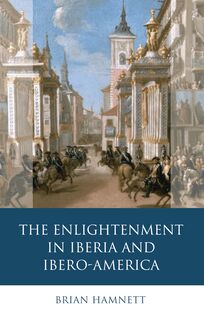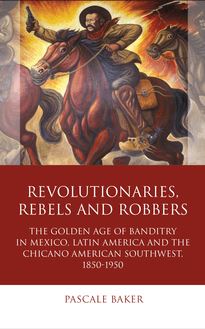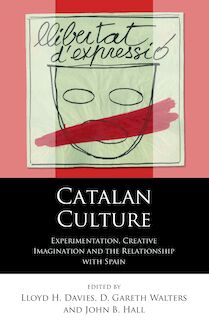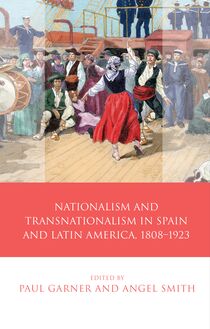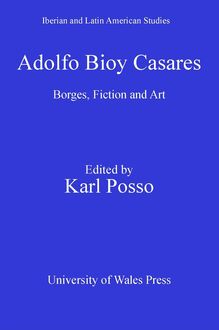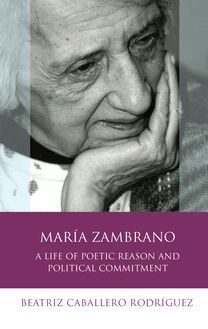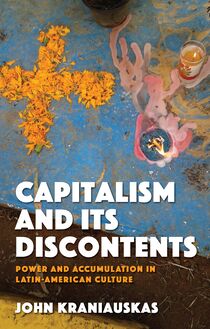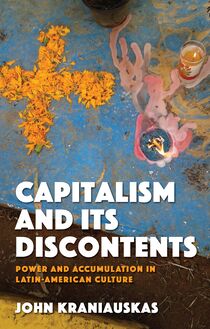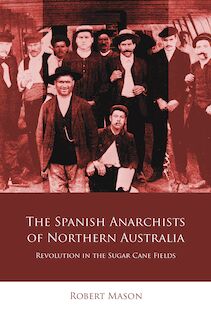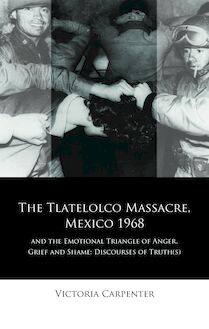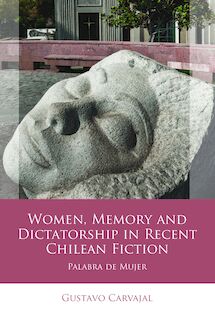-
 Univers
Univers
-
 Ebooks
Ebooks
-
 Livres audio
Livres audio
-
 Presse
Presse
-
 Podcasts
Podcasts
-
 BD
BD
-
 Documents
Documents
-
- Cours
- Révisions
- Ressources pédagogiques
- Sciences de l’éducation
- Manuels scolaires
- Langues
- Travaux de classe
- Annales de BEP
- Etudes supérieures
- Maternelle et primaire
- Fiches de lecture
- Orientation scolaire
- Méthodologie
- Corrigés de devoir
- Annales d’examens et concours
- Annales du bac
- Annales du brevet
- Rapports de stage
La lecture à portée de main
Vous pourrez modifier la taille du texte de cet ouvrage
Découvre YouScribe en t'inscrivant gratuitement
Je m'inscrisDécouvre YouScribe en t'inscrivant gratuitement
Je m'inscrisEn savoir plus
Vous pourrez modifier la taille du texte de cet ouvrage
En savoir plus

Description
Part I: The Political Transition Chapter 1: The Dictatorship was not Perfect 3 Chapter 2: Mud, mire, and democracy 29 Chapter 3: Can the Right be modern? 42 Chapter 4: The Left - in danger of extinction? 49 Chapter 5: The burdens of the Right 58 Chapter 6: Populism and democracy in Latin America 69 Chapter 7: The Mexican hydra: the return of the authoritarian party 83 Part II: Culture and Democracy Chapter 8: Intellectuals and scholars facing democracy 97 Chapter 9: The labyrinth and its map 106 Chapter 10: Ethnographic sonata in Nay-flat 117 Chapter 11: 1968: Defeat, transition, counter-culture 134 Chapter 12: Memories of the counter - culture 139 Chapter 13: Street life and politics 147 Chapter 14: The shadow of the future
Sujets
Informations
| Publié par | University of Wales Press |
| Date de parution | 31 janvier 2013 |
| Nombre de lectures | 0 |
| EAN13 | 9780708326855 |
| Langue | English |
Informations légales : prix de location à la page 0,1074€. Cette information est donnée uniquement à titre indicatif conformément à la législation en vigueur.
Extrait
IBERIAN AND LATIN AMERICAN STUDIES
The Mexican Transition
Series Editors Professor David George (Swansea University) Professor Paul Garner (University of Leeds)
Editorial Board David Frier (University of Leeds) Laura Shaw (University of Liverpool) Gareth Walters (Swansea University) Rob Stone (Swansea University) David Gies (University of Virginia) Catherine Davies (University of Nottingham) Richard Cleminson (University of Leeds)
Other titles in the series Adolfo Bioy Casares: Borges, Fiction and Art Karl Posso
Barcelona: Visual Culture, Space and Power Helena Buffery Carlota Caulfield
From Silver Screen to Spanish Stage: The Humorists of the Madrid Vanguardia and Hollywood Film Stuart Nishan Green
Modern Argentine Poetry: Exile, Displacement, Migration Ben Bollig
Catalonia: National Identity and Cultural Policy Kathryn Crameri
Melancholy and Culture: Diseases of the Soul in Golden Age Spain Roger Bartra
The Poetics of Otherness in Antonio Machado’s ‘Proverbios y Cantares’ Nicolás Fernández-Medina
The Novels of José Saramago: Echoes from the Past, Pathways into the Future David G. Frier
Hermaphroditism, Medical Science and Social Identity in Spain, 1850–1960 Richard Cleminson Francisco Vázquez García
Los Invisibles: A History of Male Homosexuality in Spain, 1850–1940 Richard Cleminson Francisco Vázquez García
Postmodernity in Spanish Fiction and Culture Yaw Agawu-Kakraba
Western Sahara: The Refugee Nation Pablo San Martín
Women in Mexican Folk Art: Of Promises, Betrayals, Monsters and Celebrities Eli Bartra
The Films of Elías Querejeta: A Producer of Landscapes Tom Whittaker
IBERIAN AND LATIN AMERICAN STUDIES
The Mexican Transition
Politics, Culture, and Democracy in the Twenty-first Century
ROGER BARTRA
UNIVERSITY OF WALES PRESS CARDIFF -->
© Roger Bartra, 2013
All rights reserved. No part of this book may be reproduced in any material form (including photocopying or storing it in any medium by electronic means and whether or not transiently or incidentally to some other use of this publication) without the written permission of the copyright owner except in accordance with the provisions of the Copyright, Designs and Patents Act 1988. Applications for the copyright owner’s written permission to reproduce any part of this publication should be addressed to the University of Wales Press, 10 Columbus Walk, Brigantine Place, Cardiff, CF10 4UP.
www.uwp.co.uk
British Library CIP A catalogue record for this book is available from the British Library.
ISBN 978–0–7083–2553–7 e-ISBN 978–0–7083–2685–5
The right of Roger Bartra to be identified as author of this work has been asserted in accordance with sections 77, 78 and 79 of the Copyright, Designs and Patents Act 1988.
Translation by Gusti Gould
Typeset by Marie Doherty Printed by the MPG Group, Bodmin, Cornwall
Contents
_______________
Series Editors’ Foreword
Prologue
Part I: The Political Transition
Chapter 1: The Dictatorship was not Perfect
Chapter 2: Mud, mire, and democracy
Chapter 3: Can the Right be modern?
Chapter 4: The Left – in danger of extinction?
Chapter 5: The burdens of the Right
Chapter 6: Populism and democracy in Latin America
Chapter 7: The Mexican hydra: the return of the authoritarian party
Part II: Culture and Democracy
Chapter 8: Intellectuals and scholars facing democracy
Chapter 9: The labyrinth and its map
Chapter 10: Ethnographic sonata in Nay-flat
Chapter 11: 1968: Defeat, transition, counter-culture
Chapter 12: Memories of the counter-culture
Chapter 13: Street life and politics
Chapter 14: The shadow of the future
Notes
Bibliography
Series Editors’ Foreword
_______________
Over recent decades the traditional ‘languages and literatures’ model in Spanish departments in universities in the United Kingdom has been superseded by a contextual, interdisciplinary and ‘area studies’ approach to the study of the culture, history, society and politics of the Hispanic and Lusophone worlds – categories that extend far beyond the confines of the Iberian Peninsula, not only in Latin America but also to Spanish-speaking and Lusophone Africa.
In response to these dynamic trends in research priorities and curriculum development, this series is designed to present both disciplinary and interdisciplinary research within the general field of Iberian and Latin American Studies, particularly studies that explore all aspects of Cultural Production (inter alia literature, film, music, dance, sport) in Spanish, Portuguese, Basque, Catalan, Galician and indigenous languages of Latin America. The series also aims to publish research in the History and Politics of the Hispanic and Lusophone worlds, at the level of both the region and the nation-state, as well as on Cultural Studies that explore the shifting terrains of gender, sexual, racial and postcolonial identities in those same regions.
Prologue
_______________
This book is a collection of essays on the Mexican transition to democracy that offers reflections on different aspects of civic culture, the political process, electoral struggles, and critical junctures. They were written at different points in time and even though they have been corrected and adapted, they have retained the tension and fervour with which they were originally created. They provide the reader with a vision of what goes on behind those horrifying images that depict Mexico as a country plagued by narcotrafficking groups and subjected to unbridled homicidal violence. These images hide the complex political reality of the country and the accidents and shocks, which democracy has suffered.
The transition was on the brink of disaster during the 2006 electoral process. Mexican politicians became entangled in an electoral war so rough and surly that it deeply wounded the country’s citizens. However, nearly one year after the great confrontation, Mexican society was tranquil, and it seemed unbelievable to many that the roaring motors of rancour had been turned off and barely hummed with indifference. What was the soothing balm that attenuated the offences and resentment? What was it that forced the politicians to abandon their aggressive attitudes and dangerous provocations?
The phantoms the politicians had invoked were suppressed by the unsuspected civility of a large part of Mexican society. Civil society managed to subdue the effect of political society’s agitated tremors. No matter how much some shouted their heads off, warning that Mexico was on the verge of collapse, divided between two irreconcilable factions, the end result was that, in some strange way, the political class understood that the time had come to stop the confrontations. It was evident that the wells of society were not flooded with harmful humours – civil society was not a treacherous minefield but rather a serene space. I cannot say what kind of communicating vessels carried this serenity to the political elite, but without a doubt they worked with amazing speed. Yellow bile did not spill out over society nor did the blue skies fall down upon everyone’s head.
I would like to believe that broad sectors of society demanded that politicians act rationally and let themselves be guided by ideas rather than accumulated hatred. I would like to think that a civil society totally fed up with the aggressiveness of the electoral campaign cried out: ‘Politicians, sirs! Give us a break! Take a break! Think hard and read more!’ Television commentators and the press quieted down. When the polls revealed that public opinion did not endorse the threatening outbursts of the losing candidate or approve of President Fox’s interference, calm began to settle over the scene. López Obrador’s attempts to create an ungovernable situation were met with evident disgust. By the same token, the High Electoral Court’s reprimands addressed to the executive office were well received.
The explosion of populist kitsch began to sicken leftists. Right-wingers were weary of a charlatan president driving along accident-strewn roads with his lights off. Society ran out of patience with the intellectuals in the Zócalo, who ridiculously handed out moral certificates of civilizing merit and burned their hearts on the pyramid of frustrated pride. Irritation grew with the threats of voracious and meddling businessmen. Disdain was spreading for an insulting Right, which although frightened, marred, and opaque, hid behind the good sense of the surprise candidate who won the presidency. Society had had enough of televised broadcasts fishing in dirty waters contaminated by the impertinence of their broadcasters. Obtuse, marginal leftists – but hardened and ready for a fight – were the motivation for writers who incessantly bombarded us with lessons in incongruence. So, was it civil society’s general disgust with these excesses that put a stop to the political debacle? Not only that: strong doses of fear and apathy had to be added in order to gauge the strange ground we were treading. In any event, society protected the initial transition to democracy, and after enduring enormous tension allowed the political pulleys to start working again, although not without difficulties.
I suspected at the time I was being too optimistic and so did not hesitate to say that this apparent calm after the post-electoral storm could be broken at any moment. For that very reason, I felt it was urgent to stimulate debate of ideas and discussion of political principles. A basic problem is that many Mexican politicians are unwilling to foster discussion. They are too drenched in opportunism – trapped in cheap pragmatism.
We cannot ignore the fact that the criticism and debate of ideas are carried out in the fragmented world of an intellectualism in transition which has yet to totally abandon the old habits acquired from its entry into the former political regime. Unfortunately old-style intellectuals still exist who are involve
-
 Univers
Univers
-
 Ebooks
Ebooks
-
 Livres audio
Livres audio
-
 Presse
Presse
-
 Podcasts
Podcasts
-
 BD
BD
-
 Documents
Documents
-
Jeunesse
-
Littérature
-
Ressources professionnelles
-
Santé et bien-être
-
Savoirs
-
Education
-
Loisirs et hobbies
-
Art, musique et cinéma
-
Actualité et débat de société
-
Jeunesse
-
Littérature
-
Ressources professionnelles
-
Santé et bien-être
-
Savoirs
-
Education
-
Loisirs et hobbies
-
Art, musique et cinéma
-
Actualité et débat de société
-
Actualités
-
Lifestyle
-
Presse jeunesse
-
Presse professionnelle
-
Pratique
-
Presse sportive
-
Presse internationale
-
Culture & Médias
-
Action et Aventures
-
Science-fiction et Fantasy
-
Société
-
Jeunesse
-
Littérature
-
Ressources professionnelles
-
Santé et bien-être
-
Savoirs
-
Education
-
Loisirs et hobbies
-
Art, musique et cinéma
-
Actualité et débat de société
- Cours
- Révisions
- Ressources pédagogiques
- Sciences de l’éducation
- Manuels scolaires
- Langues
- Travaux de classe
- Annales de BEP
- Etudes supérieures
- Maternelle et primaire
- Fiches de lecture
- Orientation scolaire
- Méthodologie
- Corrigés de devoir
- Annales d’examens et concours
- Annales du bac
- Annales du brevet
- Rapports de stage
